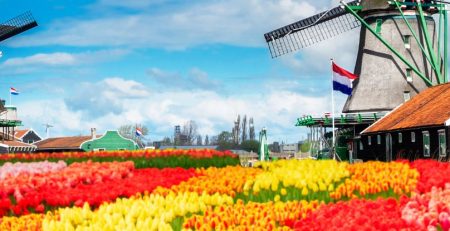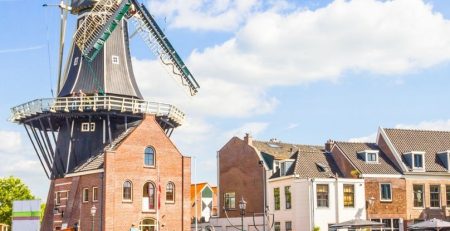Integration into Dutch Society
tijd42025-01-24T08:43:44+00:00Introduction
Integration into Dutch society is a complex process. It includes language barriers, cultural adjustments, and social nuances. While the Netherlands embraces diversity, navigating the intricacies of integration can pose challenges for newcomers. So, we will explore some issues that individuals settling in the Netherlands can meet. Also, we offer insights into overcoming these issues for a smoother integration experience.
Language Barriers in the Netherlands
Dutch Language Complexity
Dutch, with its unique sounds and grammar, presents a significant barrier for newcomers. The complexity of the language, including its pronunciation and sentence structure, can be daunting for non-native speakers.
English Dependency
The widespread proficiency in English can be a double-edged sword. While it eases communication in many situations, it also fosters a reliance on English that may hinder efforts to learn Dutch.
French and German Influence
Due to its geographical location, the Netherlands has historical ties with neighboring countries. French and German have left their mark on Dutch vocabulary. While not as widespread as English, you’ll encounter people who speak French or German, especially in border regions.
Expatriate Communities
The Netherlands hosts a large expatriate community. Many international companies have offices here, attracting professionals from around the world. Expats often communicate in English, especially in work settings. However, integrating into local life may require learning Dutch.
Social and Cultural Integration
Language barriers extend beyond basic communication. Understanding Dutch cultural nuances, humor, and social norms often requires fluency in the language. This impacts one’s sense of belonging and integration into local communities.
Workplace Challenges
In professional settings, Dutch proficiency is often a prerequisite for certain roles or career advancement. Lack of fluency can limit job opportunities and hinder networking within Dutch-speaking circles.
Access to Services
Legal and administrative processes, such as healthcare, housing, and government services, primarily operate in Dutch. Navigating these systems without language proficiency can be daunting. Moreover, it can lead to misunderstandings or delays.
How to overcome language barriers?
Language Courses
Taking Dutch language courses, through formal classes or online platforms, is a proactive step towards integration. These courses cover essential vocabulary, grammar, and cultural insights.
Language Exchange
Engaging in language exchange programs or conversation meetups allows for practical language practice and cultural exchange with native speakers.
Immersion
Immersing oneself in Dutch-language environments, such as watching Dutch TV shows, reading local newspapers, or participating in community events, accelerates language learning and cultural integration.
Professional Support
Employers and organizations often offer language support or integration programs for expatriates. It facilitates smoother transitions into Dutch society.
Dutch Work Culture: A Closer Look
Openness and Collaboration
Dutch workplaces prioritize transparency and teamwork. Employees, regardless of their position, should voice their opinions and contribute ideas openly. This fosters a culture of inclusivity and mutual respect, where everyone’s input is valued.
Work-Life Balance
The Netherlands emphasizes a healthy work-life balance. With a standard full-time workweek of 36-40 hours, employees have a structured framework for their professional commitments. Additionally, many companies offer flexible working hours, further enhancing work-life balance. This flexibility enables employees to effectively manage their personal and family responsibilities alongside their work obligations. Also, the rising popularity of the four-day workweek reflects a commitment to employee well-being and productivity.
Egalitarian Values
Flat hierarchies and egalitarian values characterize Dutch work environments. This enables individuals at all levels to participate in shaping strategies and initiatives through decentralized decision-making. Furthermore, Dutch workplaces widely accept casual attire in adherence to this egalitarian ethos.
Innovation and Sustainability
The Dutch are known for their innovative spirit and focus on sustainability. Companies invest heavily in research and development, particularly in areas like renewable energy and sustainable practices. This commitment to innovation and environmental consciousness permeates the work culture, influencing everything from daily practices to long-term strategies.
Quality Over Quantity
Dutch professionals prioritize quality over quantity. They believe in working efficiently during designated hours and then disconnecting to recharge. This approach promotes productivity, creativity, and overall well-being among employees.
Social Connections
Work in the Netherlands is not just about tasks. Also, it’s about building meaningful relationships. Coffee breaks and social gatherings like “borrels” provide opportunities for colleagues to connect on a personal level. These also foster a sense of belonging.
Religion and Secularism in the Netherlands
Christianity has historically dominated religion in the Netherlands. On the other hand, there’s been a notable decline in both Catholicism and Protestantism. The country’s population is primarily secular, reflecting a broader trend of decreasing religious adherence.
Data from 2015 indicates that over 50% of adults in the Netherlands have no religious affiliation. Among those who identify with a religion, Christians make up 43.8% of the population. In addition, Catholicism represents 23.7%, and the Protestant Church of the Netherlands is at 15.5%. Islam accounts for 4.9% of the population.
Religion is often a private matter in Dutch society, with discussions about it not being common in public spaces. However, there’s a growing trend of atheism, agnosticism, and Ietsism (spirituality without a specific religious affiliation).
Church attendance is relatively low, with only 24% of the population regularly attending religious services. Moreover, a significant portion (82%) of the population never or rarely visits a church. This indicates a shift towards secularism and a less religiously oriented society. (Source)
Overcoming Integration Challenges
Integration into Dutch society can be complex, but with the right approach, newcomers can navigate challenges effectively. Here are some insights to help you overcome integration issues and thrive in the Netherlands:
- Learn about Dutch cultural norms, humor, and social etiquette.
- Engage in cultural exchange activities for better understanding.
- Participate in local events to meet people and build relationships.
- Join expatriate communities and social groups for support.
- Embrace Dutch work-life balance principles for well-being.
- Utilize flexible working hours for personal and family commitments.
- Respect diverse religious beliefs and secular values.
- Engage in open conversations about religion and secularism respectfully.
- Be adaptable and patient as you navigate integration challenges.
- Embrace new experiences and learn from different perspectives.
Conclusion
Here is one another companion in the process of integration into the Dutch society: TIJD4.
Tijd4.nl is a valuable resource for expats and newcomers to the Netherlands, aiding in their integration journey. Whether it’s language learning, cultural insights, or financial tips, TIJD4 plays a crucial role in helping individuals adapt to their new environment.
As you embark on your Dutch adventure, remember that understanding work culture, language nuances, and local services will enhance your experience. And when you need that extra boost, Tijd4 will be there to guide you. Happy integrating!



